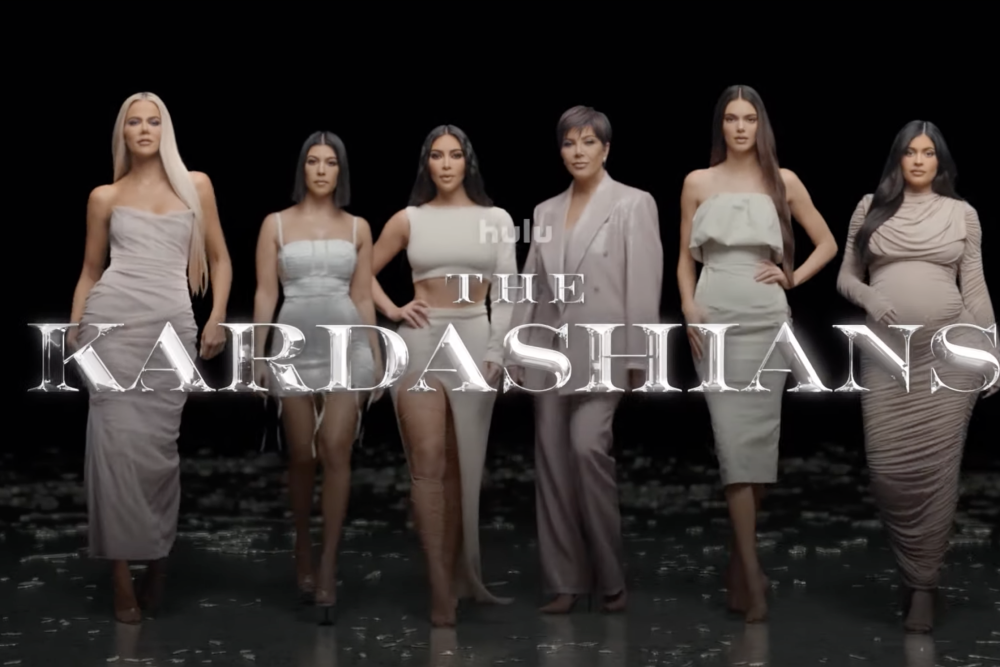The Impact of Reality TV: From Big Brother to The Kardashians
Reality television has evolved significantly since its inception, with shows that showcase unscripted moments, real-life drama, and unfiltered interactions. From the early days of Big Brother to the cultural phenomenon of Keeping Up with the Kardashians, reality TV has transformed entertainment, pop culture, and even social dynamics. Here's a deeper dive into the impact of reality TV and how it has influenced television and beyond.

The Birth of Reality TV: The Early Days
The origins of reality TV can be traced back to the late 20th century, with shows that blurred the lines between real life and entertainment. While reality TV as a genre didn't officially exist, there were early precursors to the format, such as Candid Camera (1948), which featured hidden cameras capturing real-life reactions.
However, it wasn't until the late 1990s and early 2000s that reality TV exploded in popularity. One of the earliest trailblazers in the genre was Big Brother, which premiered in 1999. This show, where contestants lived in a house and were filmed 24/7, introduced the idea of voyeuristic entertainment—viewers watching real people in real-time deal with conflicts, alliances, and relationships.
The Rise of the Reality Show Format
Following the success of Big Brother, shows like Survivor (2000), The Osbournes (2002), and The Amazing Race (2001) took reality TV mainstream. These programs blended competition, personal drama, and unscripted moments to engage audiences in ways that fictional dramas never could. They weren’t just about showcasing personal stories; they were designed to be immersive experiences, drawing viewers in with the unpredictability of human behavior.
The Evolution of Reality TV: From Competition to Celebrity Culture
As reality TV gained momentum, the focus shifted from competition-based shows to celebrity-driven content. Programs like The Simple Life (2003), which starred socialites Paris Hilton and Nicole Richie, and Keeping Up with the Kardashians (2007), became cultural landmarks, emphasizing the personal lives and relationships of celebrities rather than the traditional competitive format.
Celebrity Reality TV
The success of The Kardashians and The Simple Life signaled a shift toward reality TV shows centered on the lives of wealthy and famous individuals. These shows depicted the glamorous lifestyles of their stars, showcasing their homes, relationships, and business ventures. The lines between reality and spectacle became increasingly blurred as viewers were invited into the private lives of public figures.
This shift led to the rise of a new form of reality TV: the docuseries. These shows, like The Real Housewives franchise and Jersey Shore, focused on capturing dramatic, unscripted moments between people who weren’t necessarily competitive but were captivating due to their personalities, relationships, and high-stakes drama.
The Cultural Impact: How Reality TV Influences Society
Reality TV is more than just entertainment; it plays a significant role in shaping societal norms, beauty standards, and cultural trends. Shows like The Kardashians and Real Housewives have influenced everything from fashion to language to consumer habits.
Shaping Beauty Standards and Trends
Reality TV shows, especially those featuring celebrities like the Kardashians, have heavily impacted beauty standards. The emphasis on physical appearance, cosmetic surgery, and designer fashion has contributed to a culture where appearance is often prioritized. Many reality stars, especially in the Kardashian family, have used their platforms to promote body positivity alongside their surgically enhanced looks, creating a complex conversation about beauty in the media.
Consumer Behavior and Product Placement
Reality TV is often heavily intertwined with consumerism. Shows like The Kardashians and The Real Housewives frequently feature product placements, with cast members promoting luxury items, beauty products, and services. This has led to an increase in consumer interest in the products shown, with fans often seeking to replicate the lifestyle they see on screen.
The Psychological Appeal: Why We Love Reality TV
One of the key reasons why reality TV has resonated with so many viewers is its ability to evoke raw, emotional reactions. People are naturally curious about the lives of others, and reality TV capitalizes on this voyeuristic impulse by offering unfiltered glimpses into the private lives of its stars.
The Fascination with "Real" Drama
The unscripted nature of reality TV allows for genuine (or seemingly genuine) drama and conflict, which creates a sense of unpredictability. Viewers tune in to watch how people react under pressure, how relationships evolve, and how conflicts unfold—real situations that reflect the chaos of everyday life. This unpredictability is a huge part of what draws people to these shows, and the drama feels more immediate than a scripted drama.
The "Relatable" Aspect
While the participants in reality shows may live in luxury or experience extraordinary situations, there’s still an underlying appeal to their human struggles and interactions. Viewers can relate to the emotions—whether it’s jealousy, love, friendship, or betrayal—that the contestants or stars go through, making the experience more immersive. This relatability is part of what has made reality TV a widespread cultural force.
The Criticism: The Dark Side of Reality TV
While reality TV has been hugely successful, it hasn’t been without its fair share of criticism. Many argue that it promotes shallow values and unhealthy behaviors, with some claiming it offers an unrealistic depiction of "real" life.
The Ethical Concerns
Critics of reality TV often point to the manipulation involved in many shows. While marketed as "unscripted," many reality shows are heavily edited to create specific narratives or storylines, sometimes misrepresenting reality in the process. In some cases, contestants or stars may even be encouraged to act in exaggerated ways for the sake of drama. This has led to concerns about the ethics of reality TV, especially when it comes to its impact on young viewers or its portrayal of relationships.
The Pressure of Fame
For many people, reality TV serves as a fast-track to fame and fortune, but the pressure of being in the public eye can take a toll. Many reality stars struggle with mental health issues, addiction, or family struggles, as the relentless scrutiny of the media and public can be overwhelming. Shows like The Kardashians have also been accused of normalizing extreme wealth and privilege, making it difficult for audiences to relate to their reality, even as they consume it avidly.

The Future of Reality TV: The Next Phase
Reality TV continues to evolve, especially with the advent of social media and digital platforms. As audiences become more connected to their favorite stars via Instagram, TikTok, and Twitter, the definition of "reality" has expanded even further. The boundaries between reality TV and influencer culture are increasingly blurred, with influencers becoming stars in their own right and producing their own "reality" content for their followers.
The Rise of Social Media Stars
Platforms like YouTube, Instagram, and TikTok have become breeding grounds for the next generation of reality TV stars. Influencers can now create their own reality shows—whether it’s vlogging their daily lives or curating content that showcases their personal brands. These influencers may eventually transition to traditional television or streaming platforms, creating a seamless fusion of social media stardom and reality TV.
Streaming Platforms and Reality TV
Streaming services like Netflix and Hulu have brought reality TV into the digital age with unscripted series that explore unique and niche areas, such as The Circle, Queer Eye, and Selling Sunset. These platforms are able to cater to different audience preferences, further pushing the boundaries of reality television. Reality TV will likely continue to adapt to streaming platforms, which offer more flexibility in terms of content and distribution.
Conclusion
From Big Brother to Keeping Up with the Kardashians, reality TV has had a profound impact on entertainment, culture, and society. The genre’s evolution from competition-based shows to celebrity-driven docuseries has forever changed the way we consume television. Whether it's promoting new beauty standards, creating global phenomena, or influencing how we engage with social media, reality TV continues to capture the public's imagination, showing no signs of slowing down. As technology and audience expectations evolve, so too will reality TV, keeping it at the forefront of the entertainment industry for years to come.












